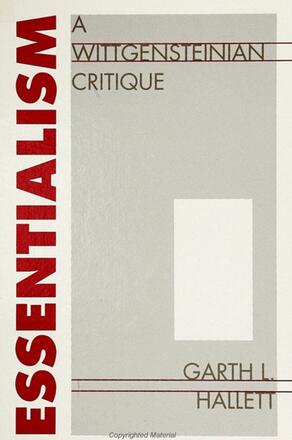
Essentialism
A Wittgensteinian Critique
Alternative formats available from:
Garth L. Hallett, S. J. , is Dean of the College of Philosophy and Letters at St. Louis University. He is the author of Wittgenstein's Definition of Meaning as Use; Darkness and Light: The Analysis of Doctrinal Statements; A Companion to Wittgenstein's "Philosophical Investigations;" Christian Moral Reasoning: An Analytic Guide; Logic for the Labyrinth: A Guide to Critical Thinking; Reason and Right; Language and Truth; and Christian Neighbor-Love: An Assessment of Six Rival Versions.
Reviews
"This book develops Wittgenstein's account of language, and uses it to criticize a number of current philosophers and their writings. Wittgenstein argued that the act of our using a single expression to label a number of different things is no evidence that these things possess a single essence. Hallett identifies a number of current essentialists, and argues that they have simply misunderstood the workings of language. He provides an explanation why philosophers persist in this mistake, and proposes therapies to get philosophers to stop making it. " — John T. Kearns, State University of New York at Buffalo
"This book is valuable for its willingness to confront the comprehensive presence of essentialism in contemporary philosophical thought, and to confront it from an intelligent and discriminating Wittgensteinian perspective. " — James C. Edwards, Furman University